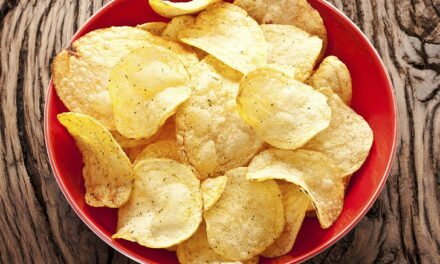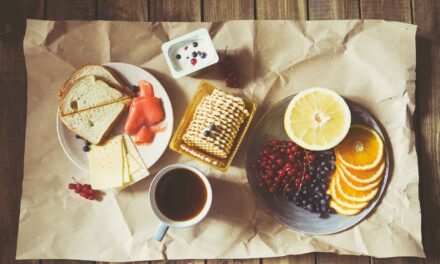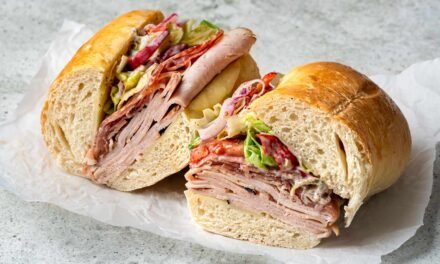Maintaining a healthy diet is crucial for achieving Fitness goals. However, not all foods labeled as “healthy” are created equal. Fitness experts have identified certain foods that, while seemingly beneficial, may actually hinder your progress. In this article, we will explore 12 foods you should avoid to optimize your fitness journey. By understanding the potential drawbacks of these items, you can make informed choices and discover healthier alternatives that will support your goals.
Fitness Experts Suggest Avoiding These 12 Healthy Foods for Optimal Results:

Fitness Experts Suggest Avoiding These 12 Healthy Foods for Optimal Results
Processed Protein Bars:
While protein bars are often marketed as a convenient and nutritious snack, many of them are highly processed and contain excessive amounts of added sugars. These ingredients can undermine your fitness efforts by contributing to weight gain and blood sugar imbalances. Instead, opt for homemade protein bars or whole food snacks like nuts, Greek yogurt, or hard-boiled eggs.
Flavored Yogurt:
Flavored yogurts are often laden with added sugars and artificial sweeteners, compromising their nutritional value. Despite the perception of being a healthy option, these yogurts can derail your fitness goals by contributing to insulin spikes and energy crashes. Choose plain, unsweetened yogurt and add fresh fruits or a drizzle of honey for a natural, healthier sweetness.
Fruit Juice:
While fruit juices may seem like a convenient way to consume essential nutrients, they are typically high in sugar and lack the fiber found in whole fruits. The rapid spike in blood sugar from fruit juice can hinder weight loss efforts and lead to energy crashes. Instead, opt for whole fruits or make your own fresh juices with a juicer to ensure you’re getting the full benefits.
Granola:
Granola is often marketed as a healthy breakfast or snack option. However, store-bought granola can be loaded with added sugars, unhealthy fats, and high-calorie content. These factors can hinder your fitness progress and contribute to weight gain. Consider making your own granola using wholesome ingredients like oats, nuts, seeds, and a touch of natural sweetener like maple syrup.
Diet Soda:
Although diet sodas are promoted as a zero-calorie alternative to regular sodas, they contain artificial sweeteners that can disrupt your metabolism and increase cravings for sugary foods. Additionally, the carbonation can lead to bloating and discomfort. Replace diet sodas with healthier options such as infused water, herbal teas, or naturally flavored sparkling water.
Pre-Packaged Smoothies:
Pre-packaged smoothies may seem like a convenient way to get your daily dose of fruits and vegetables, but they often contain added sugars, preservatives, and minimal fiber. Making your own smoothies at home allows you to control the ingredients and ensure optimal nutrition. Include a variety of fruits, vegetables, and a source of protein like Greek yogurt or a scoop of protein powder.
Low-Fat or Fat-Free Products:
Many low-fat or fat-free products are marketed as healthier alternatives, but they often contain higher amounts of sugar, artificial additives, and refined carbohydrates to compensate for the lack of fat. Healthy fats are essential for hormone regulation, satiety, and nutrient absorption. Instead of opting for these processed alternatives, choose whole foods that naturally contain healthy fats, such as avocados, nuts, seeds, and olive oil.
Margarine:
Margarine was once believed to be a healthier alternative to butter due to its lower saturated fat content. However, most margarines are highly processed and contain trans fats, which are known to be detrimental to heart health. Opt for natural alternatives like grass-fed butter or healthier plant-based spreads made from olive oil or avocado oil.
Reduced-Fat Salad Dressings:
Salads are a popular choice for health-conscious individuals, but using reduced-fat salad dressings may not be the best option. These dressings often contain added sugars, artificial flavors, and preservatives to compensate for the reduced fat content. Instead, try using olive oil, balsamic vinegar, lemon juice, or homemade dressings with natural ingredients to enhance the flavor of your salads.
Agave Syrup:
Agave syrup has gained popularity as a natural sweetener, but it is actually very high in fructose. Consuming excessive amounts of fructose can lead to weight gain, insulin resistance, and an increased risk of metabolic disorders. It’s best to limit or avoid agave syrup altogether and choose natural sweeteners like honey, maple syrup, or dates in moderation.
Packaged “Diet” or “Low-Calorie” Snacks:
Snack foods labeled as “diet” or “low-calorie” may seem like guilt-free options, but they are often processed and loaded with artificial additives. These snacks tend to lack essential nutrients and may leave you feeling unsatisfied, leading to overeating. Instead, opt for whole food snacks like fresh fruits, vegetables with hummus, Greek yogurt, or a handful of nuts to curb your hunger and nourish your body.
Frozen Diet Meals:
Frozen diet meals are marketed as convenient, portion-controlled options for weight loss. However, they are typically high in sodium, preservatives, and artificial ingredients while lacking in nutrient density. Instead, focus on preparing balanced meals using fresh, whole ingredients and incorporate lean proteins, colorful vegetables, and whole grains.
By being aware of these potential pitfalls and making smarter choices, you can align your diet with your fitness goals. Remember, a balanced and varied diet consisting of whole, unprocessed foods is key to achieving optimal health and fitness. Consult with a nutritionist or dietitian for personalized advice and guidance tailored to your specific needs and goals.
Related Post:





